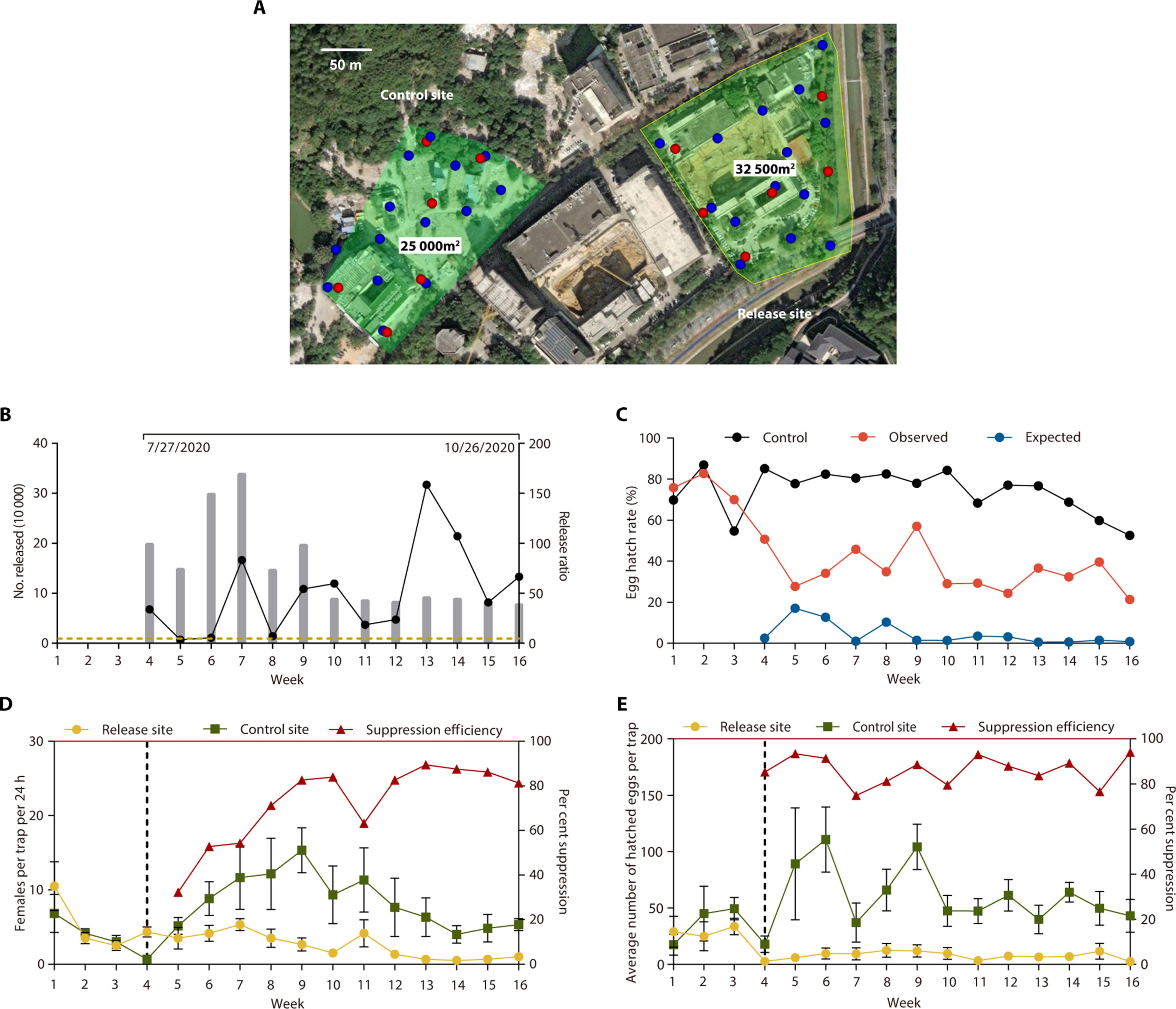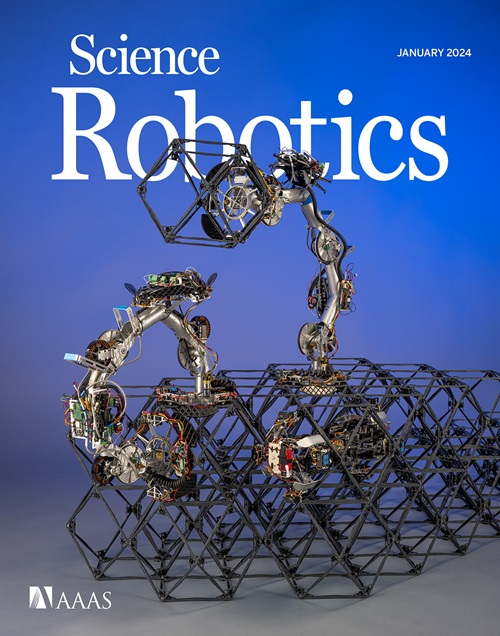利用自动蛹性别分拣机扩大雄性不育蚊子的生产规模。
IF 26.1
1区 计算机科学
Q1 ROBOTICS
引用次数: 0
摘要
通过使用不相容昆虫技术 (IIT)、昆虫不育技术 (SIT) 或它们的组合释放雄蚊诱导野生雌蚊不育交配,有效抑制蚊子种群数量已在实地试验中反复得到证实。然而,要推广这些技术,需要一种高效且可扩展的方法来对大规模饲养的蚊子进行性别分离,以最大限度地减少无意释放雌性蚊子的情况,这可能会导致种群替代或叮咬滋扰,是迄今为止的一个主要瓶颈。在此,我们报告了一种自动蚊蛹性别分拣机的成功开发,它能有效地从雌蚊中分离出大量雄蚊,用于抑制埃及伊蚊、白纹伊蚊和库蚊的种群数量。与使用 Fay-Morlan 分选机进行人工性别分离相比,自动性别分选机的雄性生产能力提高了约 17 倍,一个人每周可分离 1,600 万只雄性。在雌性污染约为 0.5% 的情况下,生产出的雄性表现出很高的飞行能力和交配性能。实地试验表明,使用自动性别分拣机生产的白纹伊蚊雄虫质量适合用于诱导种群抑制。这些结果表明,自动性别分拣机有可能提高针对蚊媒的 IIT 和 SIT 的水平,以控制疾病。本文章由计算机程序翻译,如有差异,请以英文原文为准。

Upscaling the production of sterile male mosquitoes with an automated pupa sex sorter
Effective mosquito population suppression has been repeatedly demonstrated in field trials through the release of male mosquitoes to induce sterile mating with wild females using the incompatible insect technique (IIT), the sterile insect technique (SIT), or their combination. However, upscaling these techniques requires a highly efficient and scalable approach for the sex separation of mass-reared mosquitoes to minimize the unintentional release of females, which can lead to either population replacement or biting nuisance, a major bottleneck up to now. Here, we report the successful development of an automated mosquito pupa sex sorter that can effectively separate large numbers of males from females for population suppression of Aedes aegypti, A. albopictus, and Culex quinquefasciatus. The male production capacity of the automated sex sorter was increased by ~17-fold compared with manual sex separation with the Fay-Morlan sorter and enabled one person to separate 16 million males per week. With ~0.5% female contamination, the produced males exhibited high flight ability and mating performance. The field trial demonstrates that the quality of A. albopictus males produced using the automated sex sorter is suitable for inducing population suppression. These results indicate that the automated sex sorter offers the potential to upscale IIT and SIT against mosquito vectors for disease control.
求助全文
通过发布文献求助,成功后即可免费获取论文全文。
去求助
来源期刊

Science Robotics
Mathematics-Control and Optimization
CiteScore
30.60
自引率
2.80%
发文量
83
期刊介绍:
Science Robotics publishes original, peer-reviewed, science- or engineering-based research articles that advance the field of robotics. The journal also features editor-commissioned Reviews. An international team of academic editors holds Science Robotics articles to the same high-quality standard that is the hallmark of the Science family of journals.
Sub-topics include: actuators, advanced materials, artificial Intelligence, autonomous vehicles, bio-inspired design, exoskeletons, fabrication, field robotics, human-robot interaction, humanoids, industrial robotics, kinematics, machine learning, material science, medical technology, motion planning and control, micro- and nano-robotics, multi-robot control, sensors, service robotics, social and ethical issues, soft robotics, and space, planetary and undersea exploration.
 求助内容:
求助内容: 应助结果提醒方式:
应助结果提醒方式:


